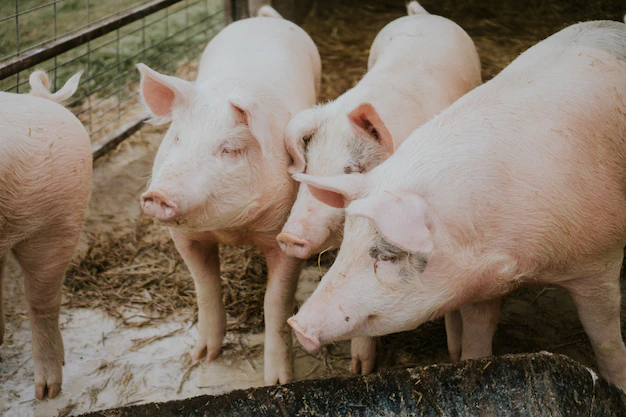Sustainable pig farming practices aim to minimize the negative environmental impact of pig production while ensuring high standards of animal welfare. Here are some key practices that promote sustainability in pig farming:
- Efficient resource management: Implementing efficient resource management techniques helps reduce the environmental footprint of pig farms. This includes optimizing feed formulation and nutrition, reducing water usage, and minimizing energy consumption.
- Manure management: Proper handling and management of pig manure is essential to prevent water and soil pollution. Techniques such as anaerobic digestion, composting, and nutrient management planning can be employed to minimize the release of greenhouse gases and protect water quality.
- Pasture-based systems: Allowing pigs access to outdoor areas, such as pastures or wooded areas, promotes natural behaviors, improves animal welfare, and reduces the environmental impact of confinement systems. Rotational grazing can be employed to ensure optimal land use and prevent overgrazing.
- Alternative bedding materials: Traditional bedding materials like straw or sawdust can have environmental implications due to the energy and resources required for their production. Exploring alternative materials, such as recycled paper products or agricultural by-products, can help reduce environmental impact.
- Integrated farming systems: Implementing integrated farming systems, where multiple agricultural activities are combined, can enhance sustainability. For example, incorporating crops and livestock on the same farm allows for nutrient recycling, reduces waste, and promotes ecosystem balance.
- Genetic selection and health management: Selecting pig breeds that are well adapted to the local environment and have good disease resistance can reduce the need for antibiotics and improve overall animal health. This approach helps minimize the environmental impact associated with pharmaceutical use and enhances animal welfare.
- Animal welfare standards: Implementing high animal welfare standards is crucial for sustainable pig farming. Providing adequate space, environmental enrichment, and access to clean water and nutritious feed are essential. Regular monitoring, proper handling, and appropriate transportation practices should also be followed to ensure animal welfare throughout the production cycle.
- Collaboration and knowledge sharing: Encouraging collaboration among pig farmers, researchers, and industry stakeholders fosters the sharing of best practices and the development of innovative solutions for sustainable pig farming. This can involve participating in industry initiatives, attending conferences, and staying updated on the latest research and technological advancements.
By adopting these sustainable pig farming practices, farmers can reduce their environmental impact, enhance animal welfare, and contribute to the long-term viability of the industry.
Join 'Farmers Mag' WhatsApp Channel
Get the latest Farming news and tips delivered straight to your WhatsApp
CLICK HERE TO JOIN






